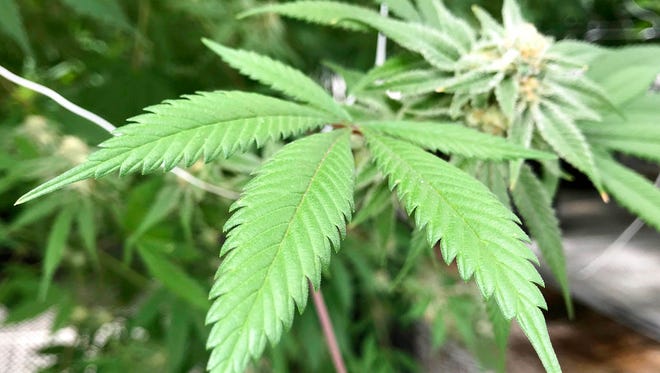Worthwhile discussion on cannabis legalization

In June 2019, Gov. Michelle Lujan-Grisham formed the Working Group on Cannabis Legalization and I was honored to serve on this committee. The process itself was enlightening, as I learned a great deal about how legislation moves from concept to the Legislature. At the same time, I sought out the opinions and concerns of Doña Ana County residents on this topic. I hosted 15 public meetings throughout our county to provide an opportunity for residents to speak with me, and each other, about the potential impact of the legalization of a substance, which has historically been the product of an illegal industry.
Many people asked me my “takeaways” from having spoken to 300 of our citizens. We kept no record of anything said during these meetings, nor did we ever seek to identify those who spoke. Three hundred people is a good statistical sampling of the approximate 100,000 county residents, so their feedback was significant.

People on both sides of this issue generally agreed the process of legalization is far easier said than done. When complex issues, such as out-of-state investment, federal banking prohibitions, social equity concerns and taxation arose, participants generally agreed it would be difficult, if not impossible, to account for any number of unintended consequences from even the most well written law.
Another significant concern was expressed from medical cannabis users. They unanimously agreed that recreational use should not put the medical cannabis industry out of business. Medical card holders cited concerns such as price spikes and product shortages if recreational cannabis is legalized. They argued the availability of a cheaper product, though much more unregulated, would be an attractive alternative to the medical market. Though medical users often said they were upset at the mediocre and inconsistent quality of medicinal cannabis, as well as its high price in New Mexico, they were equally concerned recreational use could easily overtake the medical market. The state’s management of recreational and medicinal cannabis should be separate, and not under one governmental entity such as the Regulation and Licensing Division.
There was strong support for the notion that legalization should be statewide and counties should not be able to opt-out. Essentially, Doña Ana residents believe we, as a state, should be “all-in” or “all-out.” Those who relocated from Colorado often spoke of surprising price hikes in housing costs, all types of insurance and utility bills following legalization. Opting out would create a statewide checkerboard of “winners” and “losers” if it were to come down to the possibility of opting out. Along with an opt-out provision would come the issue of which counties should benefit in the profits from legalization.
All attendees believed New Mexicans should be the financial beneficiaries of this new industry. Upon further reflection, however, it was suggested these opportunities may well go down the path of the tobacco industry, where profits were held in the hands of the few. In some states where cannabis is now legal, purchasing a license to grow costs as much as $80,000. We asked one another how many small farmers in New Mexico could afford such an investment before the first plant is in the ground?
Finally, and not unimportant, was the unanimous concern for our children. All participants believed education, beginning in elementary schools, should be recipients of significant funding from the cannabis profits to address the dangers of drug, tobacco and alcohol use. It was often expressed that alcohol is, by far, the most dangerous drug available to our children today. Participants felt we were missing the opportunity by not focusing substance abuse education on the very young.
Even though our residents often disagreed, they listened carefully to one another and provided thoughtful input. I want to thank those who took time out of their lives to let their voices be heard, both here and during public input at the working group’s meetings.
Kim Stewart is sheriff of Doña Ana County.